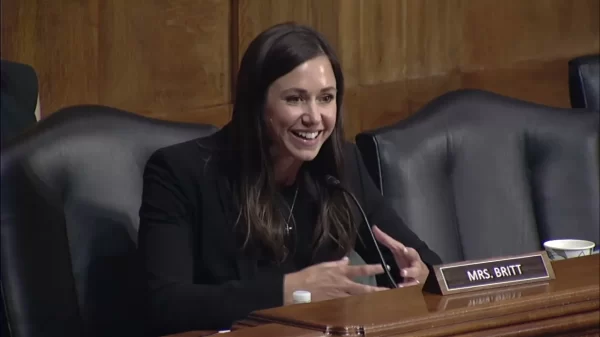By Joey Kennedy
Alabama Political Reporter
What had been a fairly quiet hurricane season is no more.
With Category 5 Hurricane Irma churning in the Atlantic and heading for Florida, along with the recent Category 4 Hurricane Harvey that devastated southeastern Texas, our hurricane season is likely to be one for the records.
I grew up with hurricanes. I was born near Houston and lived in southeastern Texas until I was eleven years old. My family then moved to Terrebonne Parish in deep south Louisiana. It wasn’t until I came to north central Alabama in 1977 that I got away from hurricanes, or at least, the direct path of them.
I do remember the remnants of Katrina in 2005 crossing over Birmingham; it was an eerie night, even though we were spared most of the brunt of that catastrophic storm that wreaked havoc across mainly the Mississippi and Louisiana Gulf Coast.
Already, and rightly so, the Federal Emergency Management Agency is deploying disaster resources around the country — about 80 responders, in fact — to Mobile to be called out after Irma makes landfall.
Irma dwarfs Harvey, and we’ve seen the damage Harvey did, especially the record amounts of rainfall that fell in the Houston area and caused widespread flooding.
Hurricanes, no matter their category, are nothing to trifle with.
Invariably, whoever’s administration that’s in power when a particularly terrible hurricane hits is going to be criticized. President George W. Bush was rightly criticized for his FEMA mishandling the response to Katrina. President Barack Obama, too, was bashed when Super Storm Sandy smashed the northeast. I expected that President Donald Trump would get grief over Harvey – and he did – but, actually, FEMA’s response was pretty good, especially considering the amount of flooding that occurred.
When there’s that much flooding, there’s only so much any agency and first-responders can do.
Trump was criticized as much for not meeting with storm victims during his first trip to Texas as he was for FEMA’s action. Trump acted like it was one of his infamous political rallies. He recovered on a later visit, but he’d already opened himself up to the type of criticism he so hates.
What was hard to stomach are politicians like Texas U.S. Sen. Ted Cruz pleading for federal aid – the same sort of federal aid he opposed in the Senate after Sandy. Such hypocrisy must not go unchecked by voters.
But all in all, Trump did what presidents try to do in the wake of a national disaster – they travel to some of the areas impacted by these killer storms and attempt to bring comfort to the rescuers and victims.
Trump did that. And he’d better get ready for another trip.
As of this writing, it’s near certain that Irma will damage Florida and other southeastern states. What’s a little more uncertain is where this terrible storm will go next – either into the Gulf of Mexico or, as it looks now, up the East Coast. And not far behind Irma is Hurricane Jose.
It’s a hurricane season gone bad.
Officials in Florida, Georgia and South Carolina have already declared states of emergency. The National Hurricane Center has tagged Irma “extremely dangerous,” and this could be the strongest Category 5 storm on record.
Though FEMA is placing assets where they can respond quickly, there’s not a lot the first-responders can really do as the hurricane strikes and in its immediate aftermath. I know from the experience of covering major hurricanes (and smaller hurricanes, too), that every person must take care of themselves and their neighbors first. And don’t forget your pets: They’re part of your family, too.
Those in mandatory evacuation areas need to leave. Those who choose to stay – and many first-responders put their lives on the line by remaining in target areas – really can’t then complain when they’re stuck for days in their attics without power and running water.
Leave, and leave now.
Irma is an especially dangerous storm at approximately 450 miles wide. Even if the eye wall doesn’t hit Florida, the impact still can be great. While the storm is expected to weaken this weekend, it still could be a Category 4 or 3 before making landfall, if it does, somewhere on the U.S. East Coast.
The easiest thing in the world is to criticize federal, state and local officials for their response when a storm like Irma hits and folks are left in a powerless, soggy, wind-blown wake. But that’s what these storms do, and no amount of preparation can deflect damage, death and heartache.
I know. I’ve seen it first-hand. I’ve been in it first-hand.
Let’s all be prepared to respond in some way, with our good thoughts, prayers and material support after the event.
Like it or not, that’s about all we can do in the immediate aftermath.
Joey Kennedy, a Pulitzer Prize winner, writes a column every week for Alabama Political Reporter. Email: [email protected].





















































